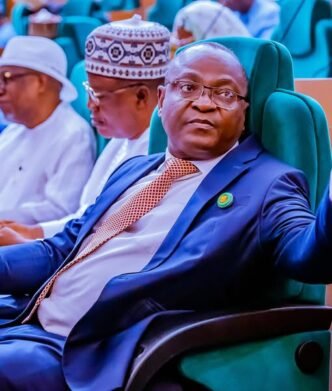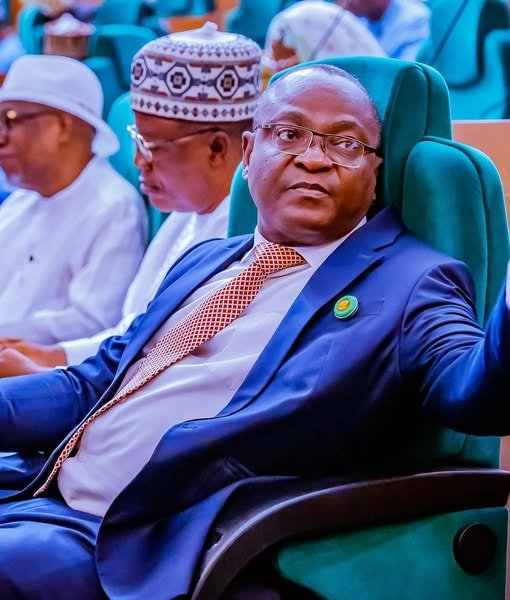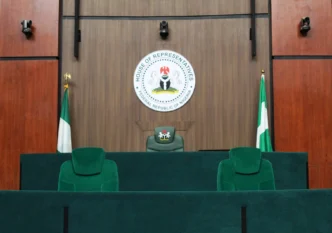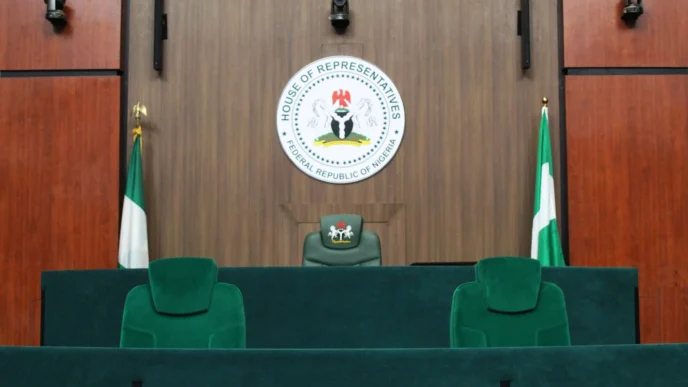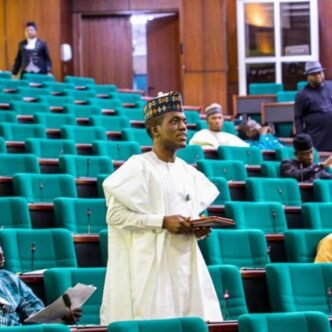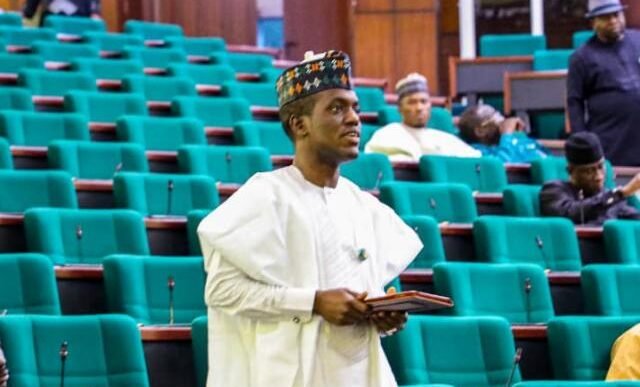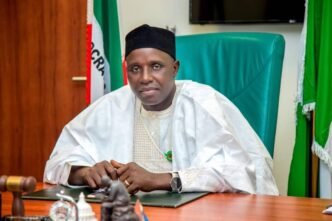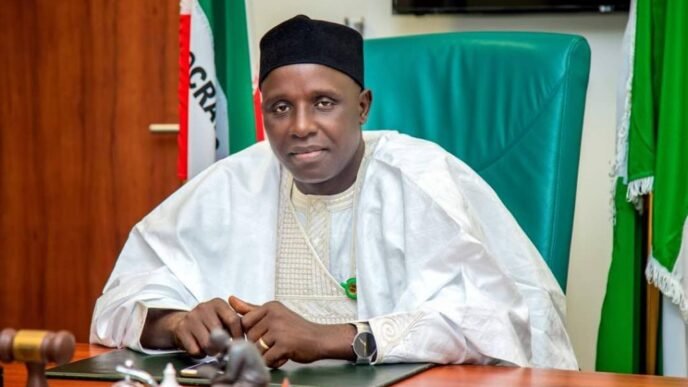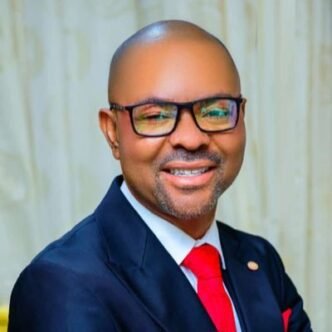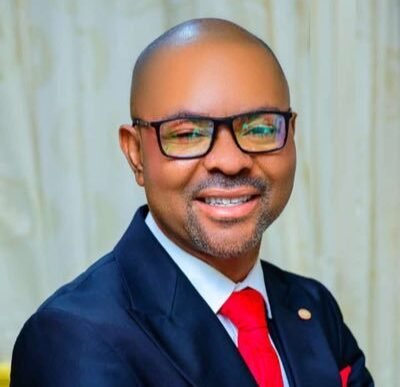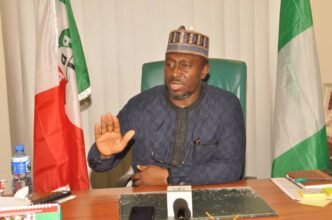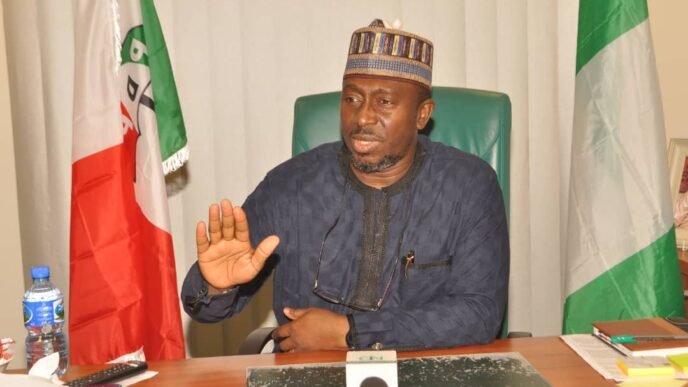HB. 1306 – A BILL FOR AN ACT TO AMEND THE CONSTITUTION OF THE FEDERAL REPUBLIC OF NIGERIA, CAP. C23, LAWS OF THE FEDERATION OF NIGERIA, 2004 TO PROVIDE FOR THE CONDUCT OF ALL GENERAL ELECTIONS IN NIGERIA ON THE SAME DAY. THE PRIMARY OBJECTIVE OF THIS ALTERATION IS TO STREAMLINE THE ELECTORAL PROCESS, REDUCE THE ADMINISTRATIVE BURDEN ON THE INDEPENDENT NATIONAL ELECTORAL COMMISSION (INEC), AND ENSURE A MORE EFFICIENT AND INCLUSIVE VOTING SYSTEM FOR ALL CITIZENS AND FOR RELATED MATTERS. Sponsored by Hon. Francis Ejiroghene Waive. Bill Progress: Committee Stage.
This Bill seeks to alter Sections 84, 153 and the 3rd Schedule of the Constitution to provide that all general elections in Nigeria be held on the same day. This is to ensure a streamlined electoral process, so as to reduce the administrative burden on the Independent National Electoral Commission (INEC).
The Nigerian House of Representatives has introduced HB. 1306, a bill aimed at amending the Constitution to mandate the simultaneous conduct of all general elections in the country. The legislation seeks to streamline the electoral process by ensuring that presidential, gubernatorial, and legislative elections take place on the same day. This move is expected to reduce the administrative burden on the Independent National Electoral Commission (INEC) and foster a more efficient and inclusive voting experience for citizens.
The key objectives of HB. 1306 are centered around enhancing the electoral framework in Nigeria. One of its primary goals is to streamline the electoral process, which is currently characterized by staggered elections spread over multiple days or even weeks. By consolidating all elections into a single day, the bill aims to simplify the voting process, making it easier for both voters and electoral officials to manage.
Furthermore, conducting elections simultaneously is anticipated to alleviate the significant logistical pressures currently placed on INEC. Staggered elections require substantial resources, including personnel, security measures, and materials, which can strain the commission’s capabilities. A single-day election would potentially reduce these demands, allowing for a more efficient allocation of resources.
The bill also posits that a one-day election could encourage higher voter turnout. With citizens required to visit polling units only once, the risk of voter fatigue may diminish, contributing to a more engaged electorate. An increase in voter participation is a primary goal of any electoral reform, and this amendment attempts to facilitate such an outcome by simplifying the voting process.
In addition to these advantages, proponents argue that consolidating elections could lead to significant cost savings for the government. Conducting multiple elections on different days incurs substantial expenses related to logistics, security deployment, and various election-related activities. By holding all elections concurrently, Nigeria could optimize spending and allocate resources more effectively.
The potential to minimize electoral malpractices is another rationale behind the bill. Staggered elections can provide opportunities for manipulation, as results from earlier contests may influence subsequent voting behaviors. By conducting all elections at once, there is a possibility of reducing these risks and enhancing the integrity of the electoral process.
However, the proposal comes with its share of challenges. The simultaneous conduct of presidential, gubernatorial, legislative, and state assembly elections would necessitate extensive logistical planning and a massive deployment of security personnel. Ensuring the security and smooth operation of polling units across the nation could prove to be a formidable task.
Voter education is another critical consideration. For citizens to effectively participate in simultaneous elections, they must be well-informed about the voting process, including how to cast their votes for multiple positions, whether on a single ballot or across multiple ballots. Comprehensive education campaigns will be essential to ensure that voters understand how to navigate the complexities of the new system.
Additionally, the counting and collation of results could become complex and time-consuming, as electoral officials will need to manage multiple sets of results at the same time. This may lead to delays that could be detrimental to the electoral process. Effective management of ballot papers for the multiple elections conducted on the same day is equally vital, presenting logistical challenges that must be addressed.
As of July 2025, HB. 1306 is in the early stages of the legislative process. Having undergone its First Reading in the House of Representatives, the bill will proceed to a Second Reading, where its general principles will be debated. If it passes this phase, it will be referred to a committee for detailed review, public hearings, and possible amendments before moving on to a Third Reading and eventual transmission to the Senate for further consideration.
The introduction of HB. 1306 represents a significant attempt to reform Nigeria’s electoral landscape, with the potential to enhance the efficiency, inclusivity, and integrity of its elections. As the legislative process unfolds, stakeholders will be keenly observing how this bill develops and what implications it may have for Nigeria’s democratic practices.
